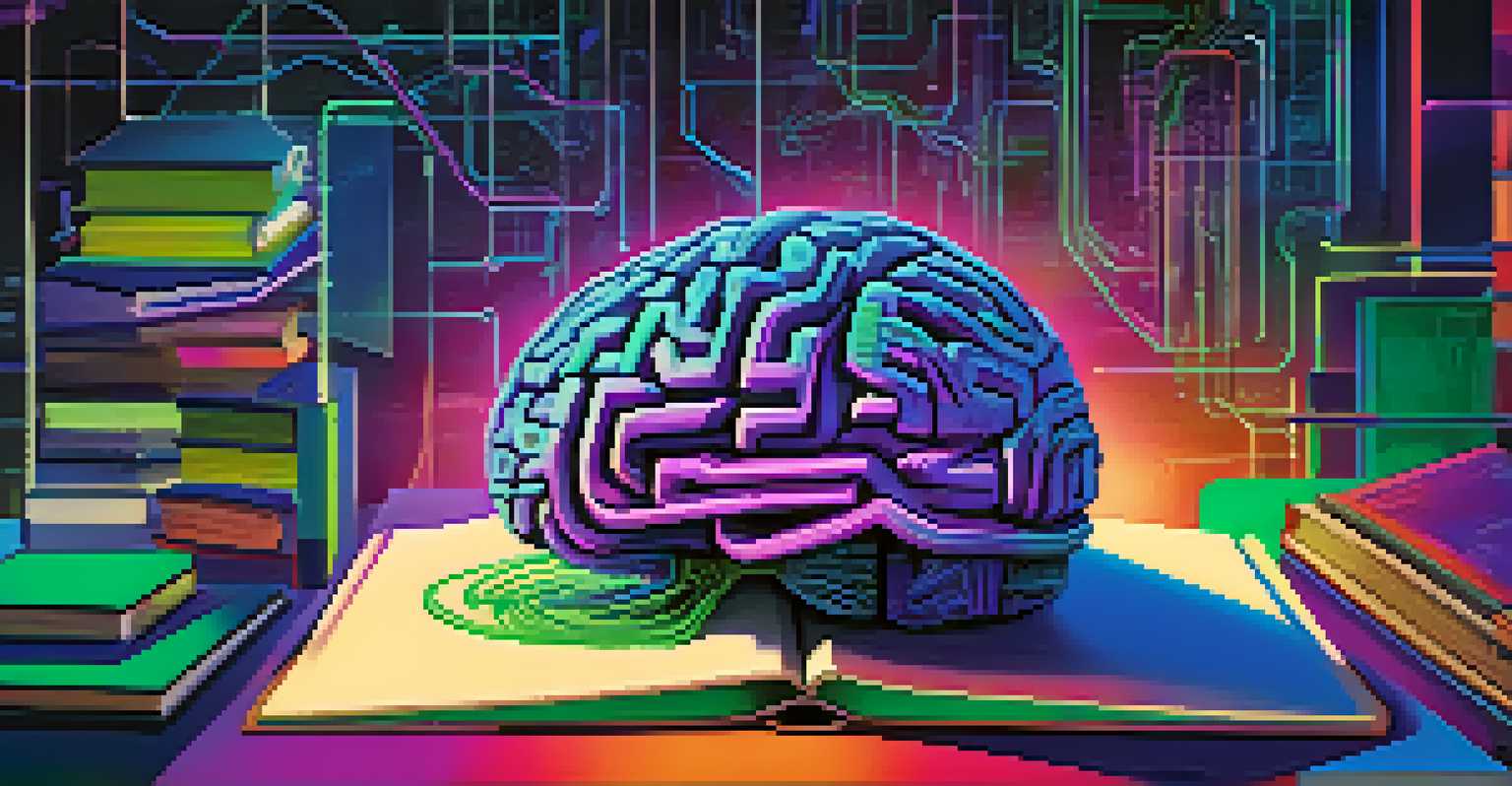Ethics of AI-Assisted Grading Systems in Education

Understanding AI-Assisted Grading Systems in Education
AI-assisted grading systems use algorithms to evaluate student work, potentially offering a more consistent approach than traditional grading. These systems analyze various aspects of assignments, such as grammar, structure, and content relevance, to assign scores. While the technology promises efficiency, it raises important questions about fairness and accuracy.
The greatest danger in times of turbulence is not the turbulence; it is to act with yesterday's logic.
The appeal of AI grading lies in its ability to handle large volumes of submissions quickly, reducing the workload for educators. However, this efficiency shouldn't overshadow the need for human oversight. After all, education is not just about numbers; it’s about understanding individual student needs and promoting their growth.
As schools increasingly adopt AI tools, it's crucial to understand how these systems function. Transparency in algorithms is essential to ensure that educators and students alike can trust the grading process. This leads us to the ethical implications of relying solely on machines to assess human creativity and critical thinking.
Bias in AI: A Critical Concern for Fairness
One of the most pressing ethical issues with AI grading systems is bias. Algorithms are only as good as the data they are trained on, and if that data reflects existing inequalities, it can perpetuate them. For instance, if an AI system is trained primarily on essays from a specific demographic, it may struggle to accurately evaluate work from students outside that group.

This bias can lead to unfair grading outcomes, which can negatively impact a student's academic journey. Imagine a student from a diverse background receiving lower scores simply because their writing style differs from the norm established by the training data. Such disparities can discourage students and undermine their confidence.
Bias Can Undermine AI Grading
AI grading systems may perpetuate existing inequalities if trained on biased data, leading to unfair assessments for diverse student backgrounds.
To combat this bias, developers must prioritize diverse and representative data sets. Regular audits of AI grading systems can help identify and rectify potential biases before they affect students. By taking these steps, we can work towards a fairer assessment landscape in education.
The Role of Educators in AI Grading Systems
Even with AI's growing presence in education, the role of educators remains irreplaceable. Teachers offer insights and context that algorithms simply cannot replicate. They understand the nuances of student performance, emotions, and challenges, which are crucial for effective grading.
Technology is best when it brings people together.
Educators can use AI as a complementary tool rather than a replacement. For example, AI might handle initial assessments, freeing up teachers to focus on personalized feedback and mentorship. This collaboration can enhance the learning experience while ensuring that human judgment remains integral to the grading process.
Ultimately, the partnership between AI and educators should be about enhancing education, not diminishing the human element. By working together, we can create a more holistic approach to student assessment that values both technology and the invaluable insights of teachers.
Student Privacy and Data Security Issues
As AI grading systems rely on student data, privacy and data security are paramount concerns. Schools must ensure that sensitive information is protected from breaches and misuse. The collection of student data for AI purposes raises questions about consent and how that data is utilized.
Imagine a scenario where students' essays are analyzed by AI, but their personal information is not adequately safeguarded. This could lead to a loss of trust between students and educational institutions. Transparency about data usage and robust security measures are essential to maintain this trust.
Human Oversight is Essential
Educators play a crucial role in the grading process, providing insights and personalized feedback that AI cannot replicate.
Furthermore, schools should educate students about their rights regarding data privacy. By fostering an environment where students feel secure sharing their work, we can create a more effective and ethical AI grading system that respects their privacy.
Transparency in AI Grading Algorithms
Transparency is crucial in the ethical implementation of AI grading systems. Educators, students, and parents need to understand how algorithms make grading decisions. If the workings of these systems remain a mystery, it can lead to skepticism and distrust.
For instance, if a student receives a low score but has no insight into the grading criteria used by the AI, it can be frustrating and disheartening. Providing clear explanations of the grading process can help alleviate concerns and foster a collaborative environment.
Moreover, involving educators in the development of these algorithms can ensure that they reflect the values of fair assessment. By prioritizing transparency, we can build a foundation of trust and accountability in AI-assisted grading.
The Impact of AI Grading on Student Learning
AI-assisted grading systems can significantly impact how students approach learning and assignments. When students know their work will be graded by an algorithm, they might focus on meeting specific criteria instead of engaging deeply with the material. This shift could lead to a more formulaic approach to education.
However, if used thoughtfully, AI grading can encourage students to improve their writing and analytical skills. For instance, immediate feedback from AI systems can help students identify areas for improvement quickly, allowing them to grow in their learning journey. This timely feedback can be a game-changer in helping students refine their skills.
Transparency Builds Trust
Clear understanding of AI grading algorithms is vital for fostering trust among students, educators, and parents in the grading process.
Balancing the benefits of AI grading with the need for authentic learning experiences is essential. Educators should guide students on how to leverage AI feedback while fostering creativity and critical thinking. This way, AI can enhance the educational experience without stifling student engagement.
Future Considerations for Ethical AI Grading
As AI technology continues to evolve, so too will its applications in education. It’s essential to remain proactive in addressing ethical considerations as these systems develop. Ongoing dialogue among educators, developers, and policymakers can help shape a future where AI grading is both effective and equitable.
For example, integrating ethical training into AI development processes could ensure that future algorithms prioritize fairness and transparency. By fostering a culture of ethical awareness, we can better navigate the complexities of AI in education.

Looking ahead, it will be crucial to adapt and refine AI grading systems based on feedback from all stakeholders. By prioritizing ethics in AI development, we can work towards a future where technology enhances education while upholding the values of fairness and integrity.